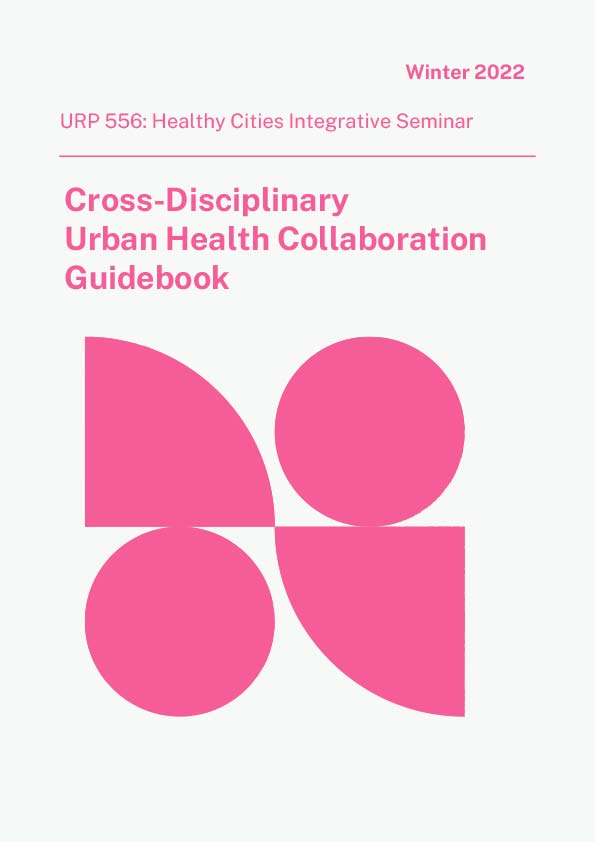Graduate Certificate in Healthy Cities
Today, for the first time in history, the majority of the world’s population lives in cities. These cities are places of tremendous economic, political, and cultural development, yet they are also spaces of unprecedented public health crises. In Europe and North America, rising rates of cancer, obesity, asthma, and other chronic health concerns are pushing public health workers, policymakers, and city planners to reexamine the relationship between urban space and public health. Similarly, in Asian, African, and South American contexts, the explosive growth of mega-cities has created unparalleled risks from infectious disease, contaminated water, inadequate food, substandard housing, toxic exposure, and natural disaster. These profound humanitarian concerns – and their potentially dire economic and political consequences – are transforming urban health and health equity into key factors driving social activism and policymaking worldwide.
The Certificate in Healthy Cities provides University of Michigan graduate students with a mechanism to study the interdisciplinary relationships linking policymaking, health science, and spatial planning in a systematic, focused manner. Although several degree programs at the university offer courses related to cities and public health themes, no single program contains the full breadth of knowledge and skillsets students will need to meet the future health challenges of global urbanism. The certificate program in Healthy Cities offers students a roadmap for integrating discussions of the social, physical, and political determinants of urban public health.
Student Work

Goals
The overall goals of the Healthy Cities certificate are as follows:
- Enhance the University of Michigan’s capabilities and reputation for training graduate students to become leaders on healthy cities topics.
- Educate students about the socioeconomic functioning of neighborhoods, infrastructure, and settlement patterns, as well as the functional interrelationships between the physical form of built environments and the health and wellness of urban inhabitants.
- Enable students to apply mixed-methods public health tools of design, implementation, and evaluation of urban contexts.
- Prepare students to use many public policy levers to systematically effect change, including organizing stakeholders, developing agendas, and mobilizing resources relevant to a range of urban health topics.
The Certificate includes five course requirements, for a total of 13 credits.
Why Enroll in the Healthy Cities Certificate?
Collaboration and effective communication among disciplines are key in creating cities that promote public health. The Graduate Certificate in Healthy Cities provides University of Michigan graduate students the language, skills, and competencies needed to engage in cross-disciplinary work to promote human health in urban contexts.
Students in the Healthy Cities certificate program come from diverse backgrounds and academic disciplines. This diversity adds richness and brings new perspectives to class discussions.
People
The following faculty conduct teaching and research related to, and are participants in the Certificate Program.
Kimberley Kinder
Associate Professor of Urban and Regional Planning, Taubman College of Architecture and Urban Planning
Jon Zelner
Assistant Professor of Epidemiology, School of Public Health
Paula Lantz
Professor and Associate Dean for Academic Affairs, Ford School of Public Policy
Roshanak Mehdipanah
Assistant Professor of Health Behavior & Health Education, School of Public Health
Joy Knoblauch
Associate Professor of Architecture, Taubman College of Architecture and Urban Planning
Student Experiences
Contact
Direct inquiries about the application process or requirements to:
Graduate Certificate in Healthy Cities Admissions
2000 Bonisteel Blvd
Room 2330/2332, Art & Architecture Bldg.
Ann Arbor, MI 48109
Email: taubmancollegeadmissions@umich.edu
Direct inquiries about the Rackham Graduate School to:
Rackham Graduate School Admissions
The University of Michigan
915 E. Washington St.
Ann Arbor, MI 48109
Email: rackadmis@umich.edu
Direct inquiries about how your background and goals would fit this program to:
Associate Professor Kimberley Kinder
Faculty Director of the Graduate Certificate in Healthy Cities
Email: kkinder@umich.edu
Phone: 734-615-7252







